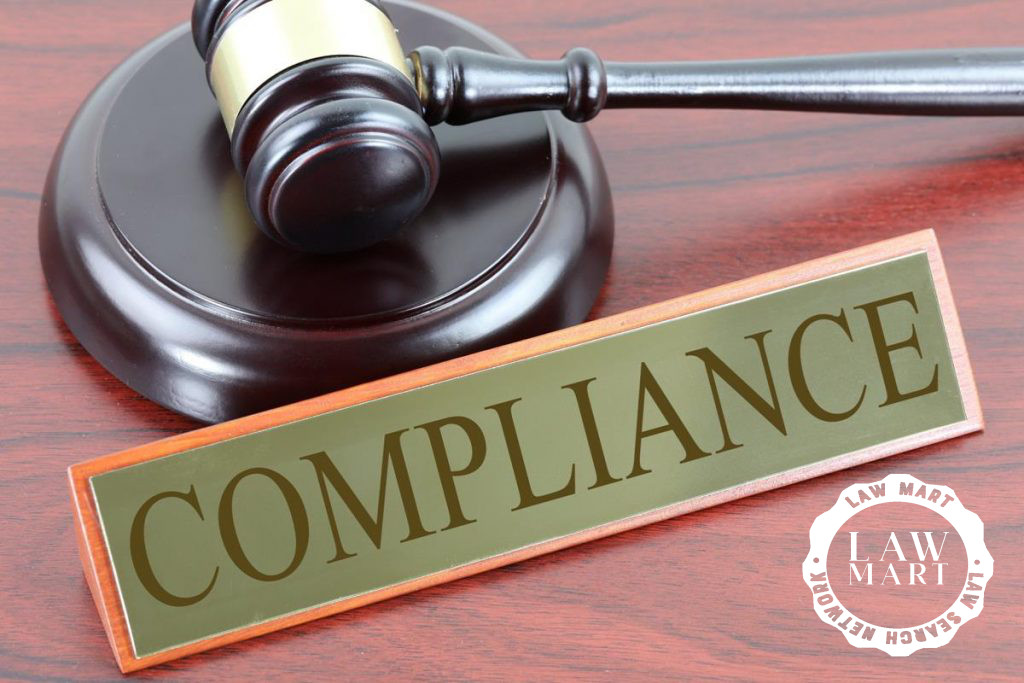

Business compliance is the way that a company makes certain that it is following all the laws and regulations that apply to their business. Generally speaking, this involves the design, implementation, and monitoring of policies, training, procedures and practices. Business Compliance programs are grounded in creating formal policies to prevent violations of laws, training personnel on relevant regulations, executions of compliance procedures and monitoring for violations. Without any of these components, your business is open to serious risk and legal liability. If you do not yet have a formal corporate compliance program, it may be a good idea to speak with a business compliance lawyer about developing a plan for you and your future.
If you want to have a successful business compliance program, there must be standards and regulations that ensure compliance by every employee is met accordingly. There are three (3) important internal compliance instruments that achieve this: a Code of Conduct, standards and policies and specified compliance course of action.
Your company’s compliance standards, policies and procedures must plainly address all the key areas of concern for administrative compliance. The following are some of the most common compliance areas that need to be addressed by businesses in California below:
Securities Laws. Any business or company with publicly or privately traded securities must be sure to abide by SEC regulations and other securities laws in order to keep away from consequences. This incorporates making appropriate disclosures, using correct accounting procedures and releasing appropriate financial statements.
Antitrust Laws. No business or company can conduct anti-competitive behaviors. Compliance procedures to abide by antitrust laws must address vetting potential mergers and acquisitions properly, as well as disregarding any undertakings that could be seen to limit the market or restrict trade, such as price-fixing.
FTC Regulations. Whenever a business or company that advertises, sells products to the public, or otherwise interrelates with consumers must make sure that they are treating the customer fairly and impartially. Some vital areas of concern for FTC compliance include advertising, e-commerce practices, fraud, and financing and loan practices.
Environmental Laws and Regulations. Not only must every company adhere to government standards and environmental regulations, but they must also abide by all state and local environmental laws. The most ordinary issues in environmental compliance include pollution, waste management, energy management and water use.
FCPA. All companies and businesses that are operating abroad must carefully abide by the Foreign Corrupt Practices Act, which interdict bribery abroad. Policies must make sure that no foreign employees or agents are permitted to issue bribes and that all financial accounting procedures are clear.
Facilities Management. All company facilities must be in full compliance with applicable codes, regulations and laws. This includes elements of OSHA compliance, DOT compliance, zoning laws and many other related policies.
Compliance Training. Any successful business compliance program must have adequate compliance training programs in order to make sure that all employees are made acquainted with their responsibilities to follow compliance procedures, policies and standards. The appropriate officers, employees, contractors and third parties must be made to comprehend all pertinent laws, regulations, corporate policies and prohibited conduct. They must also be illuminated on how to report any potential violations. In the case of a regulatory violation, your company’s training program will be heavily examined carefully to determine who will be held responsible, so it is vital that every company have robust training policies and procedures.
Compliance Monitoring and Auditing. It is impossible to enforce compliance objectives—or even know if compliance policies are being adhered to at all— without compliance monitoring and auditing. The monitoring programs must be in place to assess compliance in real time, swiftly detect problems and correct any violations that may arise. The goal of a business compliance monitoring program must be to identify and address gaps in compliance on a consistent basis. Auditing, on the contrary, is designed to review the overall picture of your businesses compliance programs on a quarterly or annual basis to detect if the monitoring program is missing anything.
The faster you speak to a Business Litigation Attorney the better. Waiting too long to file business cases can complicate your case. Make it easy on yourself. Call us to talk with an experienced business lawyer right away. Your call is confidential, and you’re FREE CONSULTATION with one of our business litigation attorneys at (310) 894-6440.
If you are in need of a business litigation attorney to help you get appropriate compensation and medical care you deserve, you should contact an attorney today. Our experienced business litigation attorney will help you find the solutions you need for your legal issues.
If you have any questions about the information provided above, please contact Law Mart at (310) 894-6440. Law Mart is a Lawyer Referral that can provide you with a Business Litigation Attorney.

Copyright © 2024 law – Powered by AmelCS